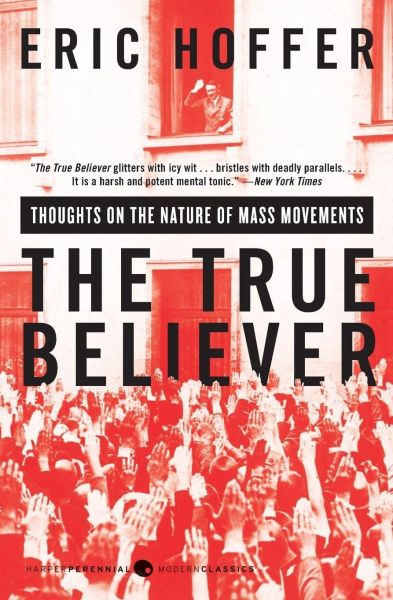Hoffer and Minorities
In the old days, I used to stay at budget hotels on Interstate 26, between Greenville and Charleston, in South Carolina, and on Interstate 85, between Greenville and Columbus, Georgia. Nearly all of them were run by Asians. Immigrants. They also ran nearly all of the convenience stores that lined the interstates. In Greenville, immigrants ran many of the fast-food restaurants, tailoring shops, and liquor stores—many of them from Greece or Lebanon.
Eric Hoffer writes in his landmark book True Believer, that the most important ethnic distinction is not between one ethnic group and another, but between assimilated and unassimilated immigrants. Hoffer, himself an immigrant from Europe, makes a number of discerning observations about the immigrant American and his encounter with the new culture—language, skin color, traditions, and religious practices.
But it goes beyond that. The immigrant has to either interact with the new culture, or draw back and resist assimilation. The Asians who run the hotels and convenience stores on the interstates serve as the best examples of assimilation. I would see their children in the late afternoon seated in the lobby of the hotel doing their homework. No doubt, they went to college and excelled; so that, if you ring the Google or Microsoft customer-service number, you may actually speak to them.
But Hoffer writes in Axiom 40 that the minority is in a "precarious position, however protected it be by law or force." It has an "unavoidable sense of insecurity", either intent on "dissolving in and blending with the majority", or "intent on preserving its identity". The minority that preserves its identity becomes "inevitably a compact whole that shelters the individual", that "gives him a sense of belonging and immunizes him against frustration. . . . In a minority bent on assimilation, the individual stands alone, pitted against prejudice and discrimination. He is also burdened with the sense of guilt, however vague, of a renegade."
In addition to that, Hoffer writes in his Axiom 39 that "unlimited opportunities" can daunt a person as easily as a lack of opportunity. "Even the preaching of revolution will find more response among people who see limitless opportunties spread out before them, than among those who move within a familiar pattern of existence."
However great the risks are for an assimilation-bound immigrant, hanging back from assimilation presents even greater risk. In Axiom 43, Hoffer writes that a minority that wants to remain whole in a contained social unit "induces and encourages an estrangement from the self." He continues that "frustration gives rise to the desire for unity and the readiness for self-sacrifice."
He adds that "the estrangement of self is usually accompanied by a train of diverse attitudes and impulses," such as a "deprecation of the present, a facility for make-believe, a proneness for hate, and a readiness to imitate." These impulses "crowd the minds of the intensely frustrated" and act as "unifying agents and prompters of recklessness." Remember that Hoffer writes all this in 1950, or right after World War II, but the words has equal topicality for the present.


